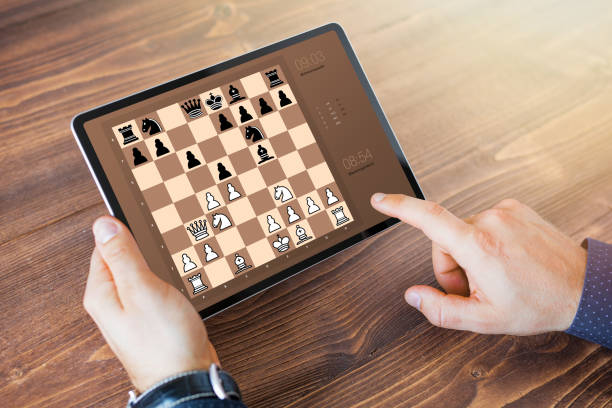1. Polish Your Opening Repertoire
In rapid chess, the opening phase is crucial. A well-rounded opening repertoire can provide a strong foundation for the middle and endgame. Focus on a few openings that you are comfortable with, and practice them consistently. You should know the key lines, plans, and typical pawn structures associated with your chosen openings. A well-practiced repertoire will save you valuable time on the clock, giving you an edge over your opponents.
2. Time Management is Key
Rapid games are a race against the clock. Effective time management is essential to avoid getting into time trouble. Allocate your time wisely during the opening and middle game, ensuring that you have ample minutes left for the critical endgame phase. Familiarity with your openings will help you navigate the early moves swiftly. In complex positions, make practical decisions to save time for critical moments.
3. Focus on Tactics
In the time-constrained environment of rapid chess, tactics are your best friends. Regular tactical training sharpens your ability to spot combinations, forks, pins, and skewers quickly. Solve tactical puzzles daily to enhance your pattern recognition. A sharp tactical eye can lead to swift victories in rapid games as it often catches opponents off guard.
4. Develop a Middlegame Strategy
A clear middlegame strategy is vital. Knowing the strengths and weaknesses of your position helps you formulate a plan. Understand the imbalances in the position, such as pawn structures, piece activity, and king safety. Your strategy may involve a pawn break, an attack on the opponent’s king, or transitioning to an endgame with a favorable pawn structure. Having a plan in mind will help you make informed moves without wasting time.
5. Keep an Eye on the Clock
Constantly monitor your remaining time and your opponent’s clock. Rapid chess can be intense, and you don’t want to lose a game due to time forfeit. Always keep track of your time, especially during critical moments. Some players find it helpful to make quick, intuitive moves in time trouble to avoid running out of time. However, practice this cautiously, as it may backfire in complex positions.
6. Master the Endgame
Endgames are often the deciding factor in rapid chess. Knowing the key endgame principles, such as king activity, pawn structures, and opposition, can lead to victory. Practice common endgame scenarios, such as king and pawn versus king, rook and king versus king, and basic checkmating techniques. This knowledge will help you convert your advantage into a win when time is ticking away.
7. Review Your Games
After each rapid game, take a few minutes to review your moves. Analyze critical positions where you could have made better decisions. Identify tactical opportunities you missed and opening choices that could have been more effective. Learning from your games is an excellent way to improve your rapid chess skills over time.
In conclusion, rapid chess is an exciting format that rewards quick thinking and strategic prowess. By honing your opening repertoire, managing your time effectively, focusing on tactics, developing a middlegame strategy, keeping an eye on the clock, mastering the endgame, and reviewing your games, you can significantly enhance your performance in rapid games.
Remember that practice and consistent learning are key to success in this fast-paced chess variant. Enjoy your games and may your strategic prowess shine in every rapid battle on the board.
Caissa School of Chess has become a top choice for chess players who are starting their chess learning journey, you may want to explore before deciding your chess coach.
Play Online Chess: 7 Tips for Rapid Games
- Sharp Openings: Master opening principles for success.
- Tactical Vision: Improve your chess tactics skills.
- Time Control Mastery: Manage the clock efficiently.
- Middlegame Strategies: Plan ahead with clever strategies.
- Precise Endgames: Win more endgame battles.
- Learn from Losses: Turn losses into learning experiences.
- Consistent Practice: Regular practice enhances performance.





